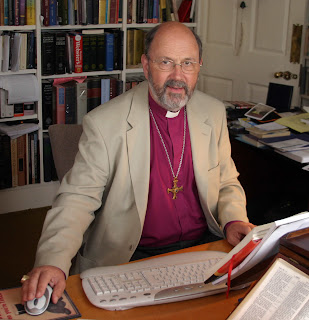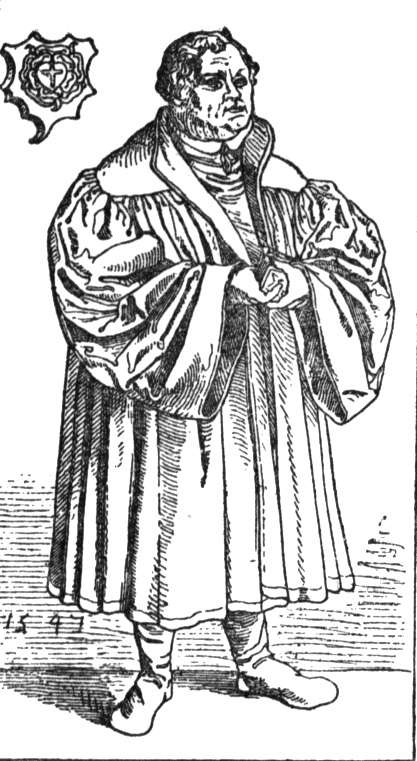 No Country For Old Men
No Country For Old Men- Cormac McCarthy
If you can believe it, McCarthy's writing is more haunting than the on-screen portrayal by Javier Bardem. Per usual, his writing is grim, violent, graphic. We are left to ponder the futility of our 'good fight'. Is there even such a thing? The protagonist drifts into the territory of moral ambiguity and we are left feeling disoriented when we realize that the serial killing bounty hunter possesses a singularity and ethic not found in the so-called 'good guy'. Through all this, the narrator, Sheriff Bell seems to be the only one willing to acknowledge the worlds (and his own) decline. Along with, The Road, this book should be on everyone's required reading.
 Our Endangered Values
Our Endangered Values- Jimmy Carter
Former President Carter seems to have uniquely improved his legacy more with his post-White House career and tireless advocacy than by anything he did as president. This account is an interesting combination of what else- politics and religion- the two things not to bring up. Knowing both President Carter's devotion to peacemaking and justice (through Atlanta's Carter Center) and his ongoing mediation in Baptist life (New Baptist Covenant & CBF), it is nice to get a firsthand account of his motivations and presuppositions. While I don't agree with him on everything, I admire his courage, incredible endurance, and unwavering posture of engagement and dialogue.
 Know-It-All: One Man's Humble Quest to Become the Smartest Person in the World-
Know-It-All: One Man's Humble Quest to Become the Smartest Person in the World- A.J. Jacobs
I came across this one because I had read his A Year of Living Biblically and curiously enough picked it up at the same time as my friend Nick from church (and disc golf) was getting through it. Jacobs essentially chronicles his quest by picking out and occasionally revisiting the oddest, most profound, and down-right wackiest entries in the EB. What makes it interesting is his wit, candor, and occasional vulnerability when discussing insights from material as varied as Ecclesiastes and aquatic mating rituals. With Esquire-esque humour and agility, Jacobs manages to deftly weave his threads of familial relations, his wife and his struggle for fertility (and subsequent fatherhood), epistemology into a funny and reflective yearlong tapestry.
 Jesus and Community
Jesus and Community- Gerhard Lohfink
Here are a couple insightful excerpts:
“If we ask Paul what significance the existence of the church has for pagan society in his writings...He says that God in Christ has reconciled the world to himself and that the church is now the place where reconciliation, which has already occurred in principle, is to be realized concretely. God has therefore charged the church with the service of reconciliation. The church is the place where, in a new creation, God has inaugurated reconciled society (pg 141).”
“Only in this gift of reconciliation, in the miracle of life newly won against all expectation, does what is here termed a contrast-society flourish. What is meant is not a church without guilt, but a church in which infinite hope emerges from forgiven guilt. What is meant is not a church in which there are no divisions, but a church which finds reconciliation despite all gulfs. What is meant is not a church without conflicts, but a church in which conflicts are settled in ways different from the rest of society. What is meant, finally, is not a church without the cross and without passion narratives, but a church always able to celebrate Easter because it both dies and rises with Christ (pg 147).”
 unChristian:What a New Generation Really Thinks about Christianity...and Why it Matters-
unChristian:What a New Generation Really Thinks about Christianity...and Why it Matters- David Kinnaman & Gabe Lyons
I must say my favorite parts of this book were some of the first-hand insights from contributors at the end of each chapter. These contributors were as diverse as Jim Wallis, Rick Warren, John Stott, Rick McKinley, Churck Colson, Andy Stanley, Andy Crouch, & Shane Claiborne. A wide variety of evangelical voices and a great representation of the polyphony and variance under the umbrella of evangelicism. I remember, however, while reading, being both thankful and disheartened. Thankful that this research was done and that this book was written and pushed through a channel whereby it gets received by the largest possible needed audience. Disheartened that money and time was spent researching and writing to let us, evangelicals, those supposedly most concerned with and incarnate in the "outside, secular world," understand that we have a bad reputation and that reputation is built more on "our" hypocrisy, imperialism, prejudice, sheltered disconnect, & politics rather than "Christ and Him crucified."Perhaps the most telling statistic was the results from a poll that revealed the disconnect between how the church's hospitality is received by pastors, regular born-again attenders, sporadic attenders, and the un-churched outsider:Christian churches accept and love people unconditionally, regardless of how people look or what they do. (% who strongly agree)
pastors: 76%
born-again Christians: 47%
Christian churchgoers: 41%
outsiders (all ages): 20%
(pg185)
 Blessed Are the Peacemakers-
Blessed Are the Peacemakers- Wendell Berry
This short work pulls out key peacemaking passages (most prominently Matthew's Sermon on the Mount) dealing with living peaceably. Finally there is an essay, previously published in the Christian Century, titled, "The Burden of the Gospels," that seeks to synthesize these passages.
Here are a couple excerpts:
"When Jesus speaks of having life more abundantly, this, I think, is the life he means: a life that is not reducible by division, category or degree, but is one thing, heavenly and earthly, spiritual and material, divided only insofar as it is embodied in distinct creatures. He is talking about a finite world that is infinitely holy, a world of time that is filled with life that is eternal. His offer of more abundant life, then, is not an invitation to declare ourselves as certified "Christians," but rather to become conscious, consenting and responsible participants in the one great life, a fulfillment hardly institutional at all."
"If we take the Gospels seriously, we are left, in our dire predicament, facing an utterly humbling question: How must we live and work so as not to be estranged from God’s presence in his work and in all his creatures? The answer, we may say, is given in Jesus’ teaching about love. But that answer raises another question that plunges us into the abyss of our ignorance, which is both human and peculiarly modern: How are we to make of that love an economic practice?"
 God Has a Dream
God Has a Dream- Archbishop Desmond Tutu
Like No Future Without Forgiveness only much, much lighter. Archbishop Tutu elaborates on the theology that roots his reconciliation efforts in South Africa over the past several decades. This theology enlists the African concept of Ubuntu, a shared humanity, the recognition of the image of God in the other. Endearing and self-deprecating at times, he begins each chapter, "Dear Child of God..." From then on you are engaged and edified by this wise, gentle, and incredibly experienced man. Catching a vision for "Hope in our Time," seems like a worthy pursuit, Tutu's contribution is helpful.
 The Sacredness of Questioning Everything
The Sacredness of Questioning Everything- David Dark
I really enjoyed this one. A pleasure: well-written, witty, and penultimately relevant for current popular Christian discourse. Something like a Christian Chuck Klosterman. This is kind of a grown-up Blue Like Jazz, the book that you might loan to someone only peripherally interested in God and spirituality, but culturally, academically aware. From his detailed exegesis of Arcade Fire songs, to his unswerving devotion to Steven Colbert's prophetic truthiness, Dark manages to produce a work both religiously and culturally discerning, and at times critical. Dark bridges the gulfs of his current Vanderbilt PhD pursuit (and talks the talk quite nicely) and his gig teaching English at a conservative Nashville Presbyterian high school. What you get is an account that asks the right questions, provides only some of the answers, lets you do the work and prayer to come up with the rest, and hails the process of loving the Lord with our heart, soul, mind, strength, and questions.
 Portrait of Calvin
Portrait of Calvin- T.H.L. Parker
[available for free digital download at Desiring God.]I read this biography to celebrate JC's (the less famous/divine one) 500th birthday this month. I also thought it might be nice to get someone else's than Steinmetz' account of Calvin, after all the good Doctor is an unabashed Luther man. The most striking and personal note struck came in the first few pages in regard to Calvin's choice of education. It seemed obvious for him to go to Paris to study Theology at what was considered the orthodox and best option. Instead he chose to study law elsewhere. "...the intricacies and niceties of the law was gained which he could never have won from the University of Paris. At Orleans and Bourges, the intellectual atmosphere was more free. New ideas were not bogies, but food for interesting speculation. The classics...now seemed most desirable- calling, not to danger, but to delights." This portion both particularly resonates with me and the path I've taken in my graduate studies, and strikes me with a certain sad irony that Calvin's delight came in the freedom and curiosity not as widely afforded in some modern institutions that hail his thought. Related:
SUMMER READING: PART I.

























